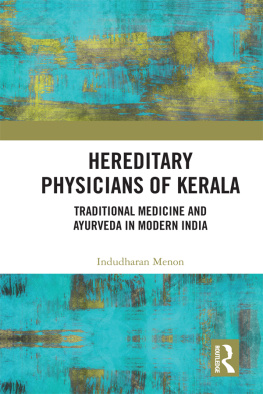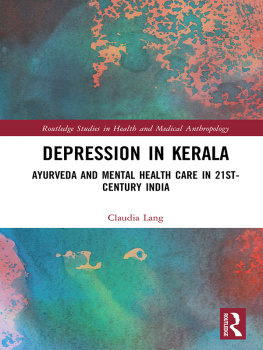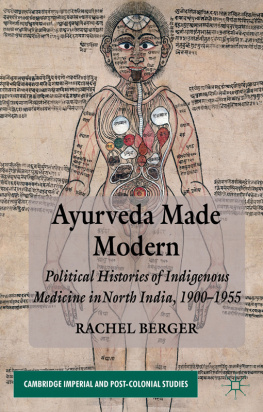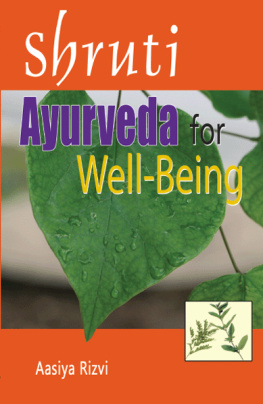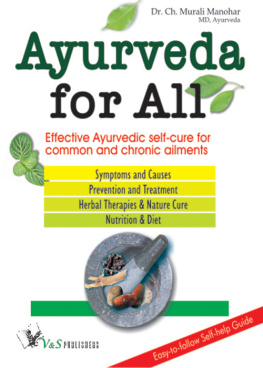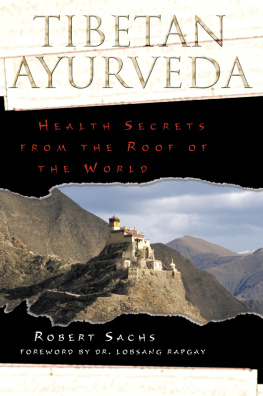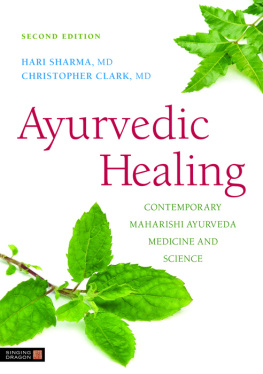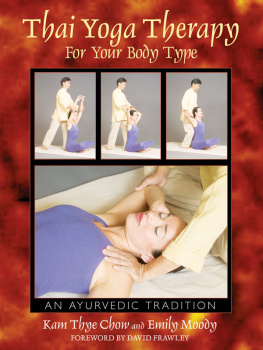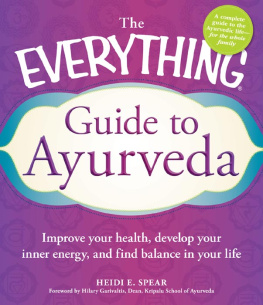Hereditary Physicians of Kerala
This book examines the history and evolution of Ayurveda and other indigenous medical traditions in juxtaposition with their encounter with colonial modernity. Through the lens of hereditary folk and Ayurvedic practitioners, it focuses on Keralas heterogeneous medical traditions and presents them against the backdrop of the geographical, historical, sociocultural, ethnographic and regional contexts in which they developed and transformed.
The author explores the world of Keralas last traditionally trained hereditary practitioners (folk healers, poison therapists, Sanskrit-speaking Muslim Ayurvedic practitioners and the legendary Brahman Ashtavaidyan physicians). He discusses the views of these physicians regarding the marked difference between their personalised ancestral methods of treatment and the standardised version of Ayurveda compliant with biomedicine that is practised by doctors today.
Drawing on extensive fieldwork, this book will be useful to researchers and scholars of medical anthropology, health and social medicine, sociology and social anthropology, the history of science and modern Indian history, as well as to medical practitioners interested in alternative and traditional medicine.
Indudharan Menon is Visiting Scholar at the Science and Society Programme, National Centre for Biological Sciences (Tata Institute of Fundamental Research), Bengaluru, India. As an Indologist who has studied and extensively researched traditional Indian medicine, sciences and philosophy, he has also coordinated research projects involving traditional Indian vaidyas, biomedical doctors and ethnobotanists. His publications include the book The Concealed Essence of the Hevajra Tantra (1992) and papers in the Journal of Ayurveda and Integrative Medicine (2010) and Current Science (2014).
Hereditary Physicians of Kerala
Traditional medicine and Ayurveda in modern India
Indudharan Menon
First published 2019
by Routledge
2 Park Square, Milton Park, Abingdon, Oxon OX14 4RN
and by Routledge
52 Vanderbilt Avenue, New York, NY 10017
Routledge is an imprint of the Taylor & Francis Group, an informa business
2019 Indudharan Menon
The right of Indudharan Menon to be identified as author of this work has been asserted by him in accordance with sections 77 and 78 of the Copyright, Designs and Patents Act 1988.
All rights reserved. No part of this book may be reprinted or reproduced or utilised in any form or by any electronic, mechanical, or other means, now known or hereafter invented, including photocopying and recording, or in any information storage or retrieval system, without permission in writing from the publishers.
Trademark notice: Product or corporate names may be trademarks or registered trademarks, and are used only for identification and explanation without intent to infringe.
British Library Cataloguing-in-Publication Data
A catalogue record for this book is available from the British Library
Library of Congress Cataloging-in-Publication Data
A catalog record has been requested for this book
ISBN: 978-1-138-61730-8 (hbk)
ISBN: 978-0-429-02298-2 (ebk)
Typeset in Galliard
by Apex CoVantage, LLC
Dedicated to Vaidyamadham Cheriya Narayanan Nambuthiri
(19302013), Peerless Ayurvedic Physician
Contents
There is consensus today among historians of science and social scientists that sociocultural contexts and geopolitical factors significantly influence the growth and development of scientific knowledge and technology. As a consequence of this growing awareness of the context-dependent nature of knowledge systems, comprehending the role of the locality and social space in which they are situated and practised has become essential for our understanding the sciences and their evolution. In 2010, the Science and Society Programme at the National Centre for Biological Sciences (NCBS), Bengaluru, initiated a research project to study the social underpinnings of Keralas traditional medical culture. The focus of the project was the traditional hereditary Ayurvedic and folk physicians of Malabar, their ancestral heritage and the modalities and significance of their encounter with modernity. This book presents my observations and reflections resulting from field studies and research work conducted in Kerala for the project between 2010 and 2014.
Keralas traditional medical culture, with its marked plurality of practices, is primarily the product of interactions for over a millennium between its indigenous folk healing traditions and the Sanskrit-based tradition of Ayurveda formulated in the Indo-Gangetic region of northern India. Transfer and exchange of expertise in medicine naturally took place against the backdrop of the specificities of Keralas history, geography and sociocultural environment. A wide variety of local folk healing traditions has influenced the evolution of indigenous medicine in Kerala; nevertheless, I have used Ayurveda as reference in this study since it has relatively well-defined contours and influenced almost all traditional medical practitioners of the region. We also happen to know more about the history and development of Ayurveda than that of folk medicine.
As in many other domains of Indian tradition, change in continuity through assimilation of new influences to pre-existing practices had been the mode in which Ayurveda and traditional medicine developed and evolved in the subcontinent over millennia. However, in a relatively short period of less than two centuries of English colonial rule, the transmission and practice of Ayurveda and other indigenous medical traditions underwent unprecedented transformations. The ancient indigenous gurukulam system of transmission from preceptors to disciples gradually gave way to educational institutions based on the British system. Such institutions as a matter of course adopted western pedagogical methods and also began to assimilate diverse aspects of western medical theory and practices. Today, Ayurvedic colleges and practitioners function using the theory and practices of classical Ayurveda overlaid with terminology and technology of western medicine. In fact, the modern form of Ayurveda, which overtly utilises the frames of reference and tools of modern biomedicine, is a typical product of the kind of hybrid consciousness and culture that emerged in almost all domains of life in India in the wake of the colonial era.
There is no denying that Ayurvedas encounter with western medicine has had a certain invigorating influence on its reformation during the 20th century. Nonetheless, regulations imposed by colonial authorities and later reinforced by the Indian government after Independence undermined and dismantled a centuries-old culture and conception of practice and transmission of medical knowledge. This study discusses the world and experiences of some of the last traditionally trained hereditary physicians of Kerala and issues and challenges that they have had to face in the modern context. Through the voices of a vanishing race of hereditary physicians caught between tradition and modernity, I have attempted to elucidate the changing world of traditional medicine and the lives of those who practise it.
The Science and Society Programme at NCBS, which is at the origin of this study, was an oral history project to research traditional medical practitioners of Kerala. It was also conceived as an initiative to interact with the society at large in an informative manner and create a space for dialogue between scientists, scholars and the public, the end users of medical services, regarding the evolution of Indias indigenous medical practices and the transformations they have undergone in the past couple of centuries. There are already a number of inter-disciplinary studies on different facets of the encounter between indigenous and western medicines that are closed circuit works addressing specialist audiences. Rather than overlooking information already familiar to scholars and academics, this study has been written from the ground up with an introduction presenting a brief overview of the history of indigenous medicine in India and two chapters depicting the context in which traditional medicine emerged and evolved in Kerala.

